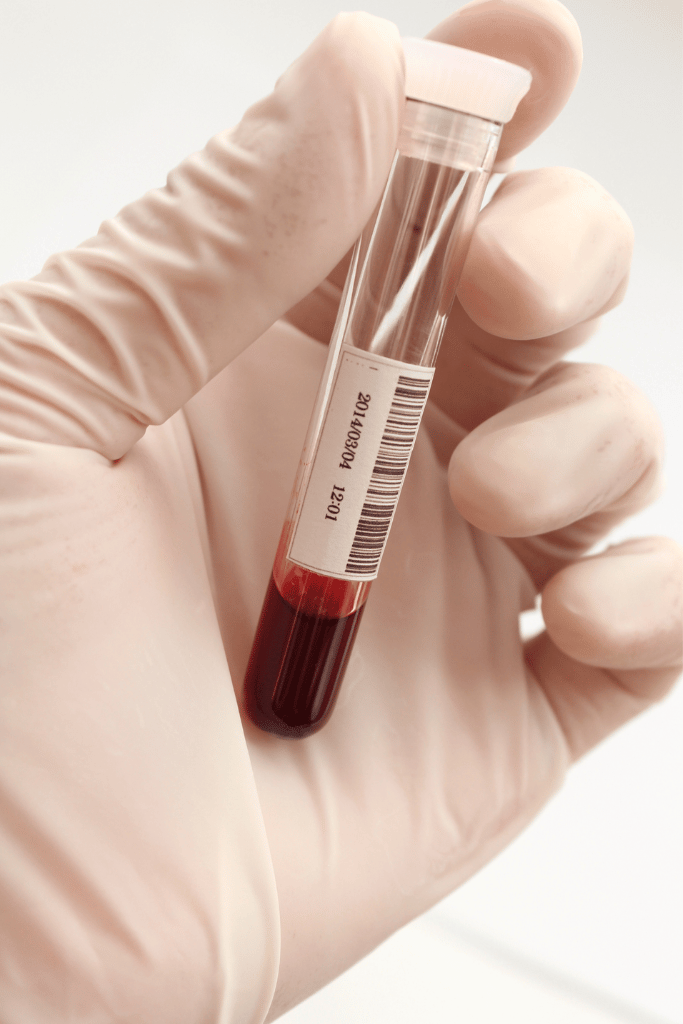What is an FOBT?
The Faecal Occult Blood Test (FOBT) is a test that’s used to check stool samples for blood.
Occult blood refers to hidden blood or blood that’s passed in very small amounts—to the point that it can only be detected through the use of chemicals during an FOBT.
If there’s blood found in your FOBT test results, it doesn’t necessarily mean that it’s cancer. It means that there’s bleeding somewhere in the gastrointestinal tract.
The test can only detect the presence or absence of blood and can’t determine what’s causing the bleeding. This means that further testing is required if you get a positive FOBT result.
Who should take an FOBT?
FOBTs are a type of screening test that doctors use to find colorectal cancer. It’s, however, not a test that’s recommended for everyone, as it does have certain weaknesses.
If you’re already experiencing colon cancer symptoms, this test is not recommended.
Instead, you would likely be screened using a colonoscopy procedure, which is a much more comprehensive method of screening.
Doctors often recommend an FOBT if you have an average risk of developing colon cancer and if you’re 45 or older.
Since an FOBT is not as comprehensive as other screening methods, if you get positive FOBT results, you will have to undergo a colonoscopy or flexible sigmoidoscopy as a follow-up.
Some, however, prefer an FOBT as it’s a less invasive procedure. This test also has to be repeated yearly for it to be effective.
If irregular results are found, further testing can be conducted to confirm the FOBT test results.
Types of FOBTs
There are two main types of FOBTs.
The first is the guaiac-based FOBT or gFOBT.
This involves placing your stool sample on a card coated with a plant-based substance called guaiac.
This substance changes colour when it’s in contact with blood. While this test can give quick results, it also requires several dietary changes a few days before the test.
The second FOBT is the Faecal Immunochemical Test (FIT) or iFOBT.
This involves placing a stool sample on a card in a container that’s coated with a protein that can attach itself to the oxygen-carrying part of red blood cells. This must then be sent back to the lab to interpret, which can take longer than the gFOBT.

What to do with positive FOBT test results

Once you have taken the test, your doctor will review the results and share them with you.
The test isn’t always accurate as the FOBT could show a negative test result when your cancerous growths or polyps don’t bleed.
They can also show positive FOBT test results when you have no cancer or if you have bleeding from other sources, such as a stomach ulcer, haemorrhoid, or even blood swallowed from your mouth or nose.
A positive FOBT result will likely require additional testing to locate the source of the bleeding and to help your doctor inform his treatment plan if necessary.
Consult a gastrointestinal specialist for colon cancer screening
Dr Suhirdan Vivekanandarajah is a Sydney-based gastroenterologist and hepatologist.
His extensive knowledge of the gastrointestinal tract can help you with determining whether an FOBT test is suitable for you and can help with interpreting the results.
To find out more, schedule a consultation with him today.
It’s normal to have a day or two of throat irritation or bloating following the procedure, but you should call your er, rectal bleeding, or severe pain in the throat, chest, or stomach.
What is an FOBT?
The Faecal Occult Blood Test (FOBT) is a test that’s used to check stool samples for blood.
Occult blood refers to hidden blood or blood that’s passed in very small amounts—to the point that it can only be detected through the use of chemicals during an FOBT.
If there’s blood found in your FOBT test results, it doesn’t necessarily mean that it’s cancer. It means that there’s bleeding somewhere in the gastrointestinal tract.
The test can only detect the presence or absence of blood and can’t determine what’s causing the bleeding. This means that further testing is required if you get a positive FOBT result.
Who should take an FOBT?
FOBTs are a type of screening test that doctors use to find colorectal cancer. It’s, however, not a test that’s recommended for everyone, as it does have certain weaknesses.
If you’re already experiencing colon cancer symptoms, this test is not recommended.
Instead, you would likely be screened using a colonoscopy procedure, which is a much more comprehensive method of screening.
Doctors often recommend an FOBT if you have an average risk of developing colon cancer and if you’re 45 or older.
Since an FOBT is not as comprehensive as other screening methods, if you get positive FOBT results, you will have to undergo a colonoscopy or flexible sigmoidoscopy as a follow-up.
Some, however, prefer an FOBT as it’s a less invasive procedure. This test also has to be repeated yearly for it to be effective.
If irregular results are found, further testing can be conducted to confirm the FOBT test results.
Types of FOBTs
There are two main types of FOBTs.
The first is the guaiac-based FOBT or gFOBT.
This involves placing your stool sample on a card coated with a plant-based substance called guaiac.
This substance changes colour when it’s in contact with blood. While this test can give quick results, it also requires several dietary changes a few days before the test.
The second FOBT is the Faecal Immunochemical Test (FIT) or iFOBT.
This involves placing a stool sample on a card in a container that’s coated with a protein that can attach itself to the oxygen-carrying part of red blood cells. This must then be sent back to the lab to interpret, which can take longer than the gFOBT.

What to do with positive FOBT test results

Once you have taken the test, your doctor will review the results and share them with you.
The test isn’t always accurate as the FOBT could show a negative test result when your cancerous growths or polyps don’t bleed.
They can also show positive FOBT test results when you have no cancer or if you have bleeding from other sources, such as a stomach ulcer, haemorrhoid, or even blood swallowed from your mouth or nose.
A positive FOBT result will likely require additional testing to locate the source of the bleeding and to help your doctor inform his treatment plan if necessary.
Consult a gastrointestinal specialist for colon cancer screening
Dr Suhirdan Vivekanandarajah is a Sydney-based gastroenterologist and hepatologist.
His extensive knowledge of the gastrointestinal tract can help you with determining whether an FOBT test is suitable for you and can help with interpreting the results.
To find out more, schedule a consultation with him today.
It’s normal to have a day or two of throat irritation or bloating following the procedure, but you should call your er, rectal bleeding, or severe pain in the throat, chest, or stomach.
What is an FOBT?
The Faecal Occult Blood Test (FOBT) is a test that’s used to check stool samples for blood.
Occult blood refers to hidden blood or blood that’s passed in very small amounts—to the point that it can only be detected through the use of chemicals during an FOBT.
If there’s blood found in your FOBT test results, it doesn’t necessarily mean that it’s cancer. It means that there’s bleeding somewhere in the gastrointestinal tract.
The test can only detect the presence or absence of blood and can’t determine what’s causing the bleeding. This means that further testing is required if you get a positive FOBT result.
Who should take an FOBT?
FOBTs are a type of screening test that doctors use to find colorectal cancer. It’s, however, not a test that’s recommended for everyone, as it does have certain weaknesses.
If you’re already experiencing colon cancer symptoms, this test is not recommended.
Instead, you would likely be screened using a colonoscopy procedure, which is a much more comprehensive method of screening.
Doctors often recommend an FOBT if you have an average risk of developing colon cancer and if you’re 45 or older.
Since an FOBT is not as comprehensive as other screening methods, if you get positive FOBT results, you will have to undergo a colonoscopy or flexible sigmoidoscopy as a follow-up.
Some, however, prefer an FOBT as it’s a less invasive procedure. This test also has to be repeated yearly for it to be effective.
If irregular results are found, further testing can be conducted to confirm the FOBT test results.
Types of FOBTs
There are two main types of FOBTs.
The first is the guaiac-based FOBT or gFOBT.
This involves placing your stool sample on a card coated with a plant-based substance called guaiac.
This substance changes colour when it’s in contact with blood. While this test can give quick results, it also requires several dietary changes a few days before the test.
The second FOBT is the Faecal Immunochemical Test (FIT) or iFOBT.
This involves placing a stool sample on a card in a container that’s coated with a protein that can attach itself to the oxygen-carrying part of red blood cells. This must then be sent back to the lab to interpret, which can take longer than the gFOBT.

What to do with positive FOBT test results

Once you have taken the test, your doctor will review the results and share them with you.
The test isn’t always accurate as the FOBT could show a negative test result when your cancerous growths or polyps don’t bleed.
They can also show positive FOBT test results when you have no cancer or if you have bleeding from other sources, such as a stomach ulcer, haemorrhoid, or even blood swallowed from your mouth or nose.
A positive FOBT result will likely require additional testing to locate the source of the bleeding and to help your doctor inform his treatment plan if necessary.
Consult a gastrointestinal specialist for colon cancer screening
Dr Suhirdan Vivekanandarajah is a Sydney-based gastroenterologist and hepatologist.
His extensive knowledge of the gastrointestinal tract can help you with determining whether an FOBT test is suitable for you and can help with interpreting the results.
To find out more, schedule a consultation with him today.
It’s normal to have a day or two of throat irritation or bloating following the procedure, but you should call your er, rectal bleeding, or severe pain in the throat, chest, or stomach.
Consult a gastrointestinal specialist for a panendoscopy procedure in Sydney
Dr Suhirdan Vivekanandarajah is a leading gastroenterologist and hepatologist based in Sydney. He specialises in diagnosing and treating gastrointestinal conditions
Schedule a consultation with Dr Suhirdan if you’re experiencing gastrointestinal issues.
